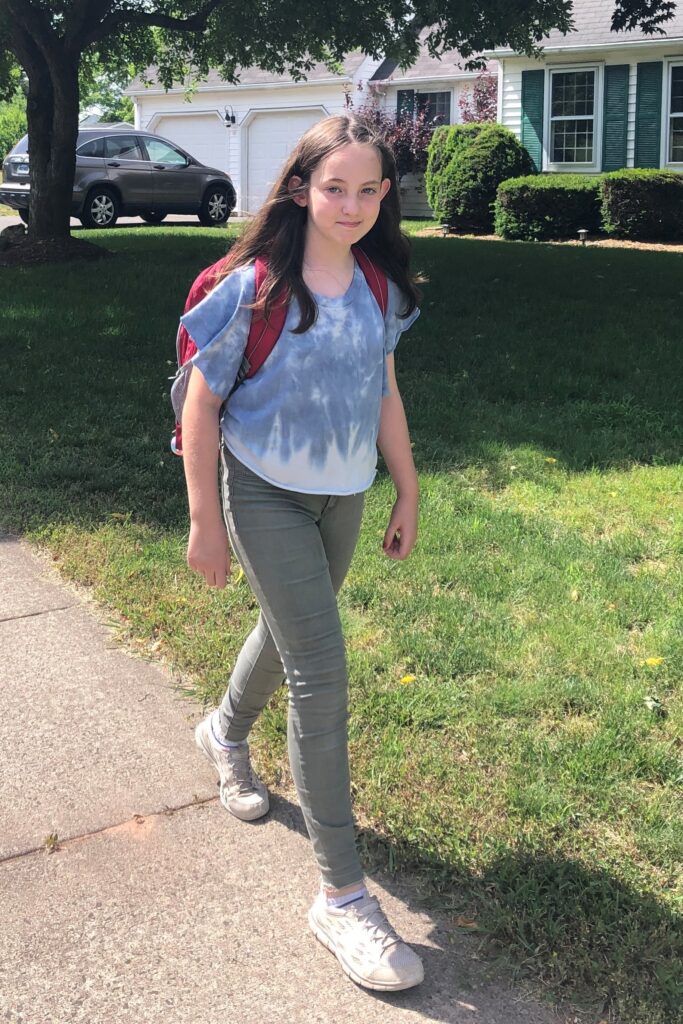
Cora Chenier is a proud and happy walker.
The coronavirus pandemic has been hard on everyone, but especially on elementary school children. It’s an age of rapid development – intellectual, social, and emotional. When students had 3 days per week of “virtual” classes from home, learning was limited. Children’s development was restricted just when it needed stimulation through adventure, growing independence, and socializing with classmates.
But despite those limitations, families found ways to make the most of a rough time. That was the case for Cora Chenier, who became a walker. During the pandemic, school buses carried their own obvious risks. So, in spite of some sidewalk deficiencies in the neighborhood, Cora and her parents found a safe route to school using side streets and a “back entrance” to Gildersleeve School. Some of Cora’s friends were dropped off at her house by their parents, so they could all walk to school together. It became a “walking school bus.”
Now that vaccinations for children are available and school buses are relatively safe again, Cora is a proud and happy walker. Cora said, “I feel better after walking. You get some fresh air after being inside all day.” And she points out that “walking doesn’t emit carbon dioxide from burning fossil fuels.” Although it’s not a long distance to school from her house, about 5 minutes, she said she enjoys the feeling of independence. “It feels good that I can be trusted to walk alone.” Cora’s younger sister Gretta can’t wait to be a walker next year.
Cora has also been a participant in the “Everyone Outside” program at Fire Ring Farm in Portland. There they hike, plant vegetables, feed the chickens, and play games—even if it rains. Everyone Outside, a nonprofit organization based in Middletown.













